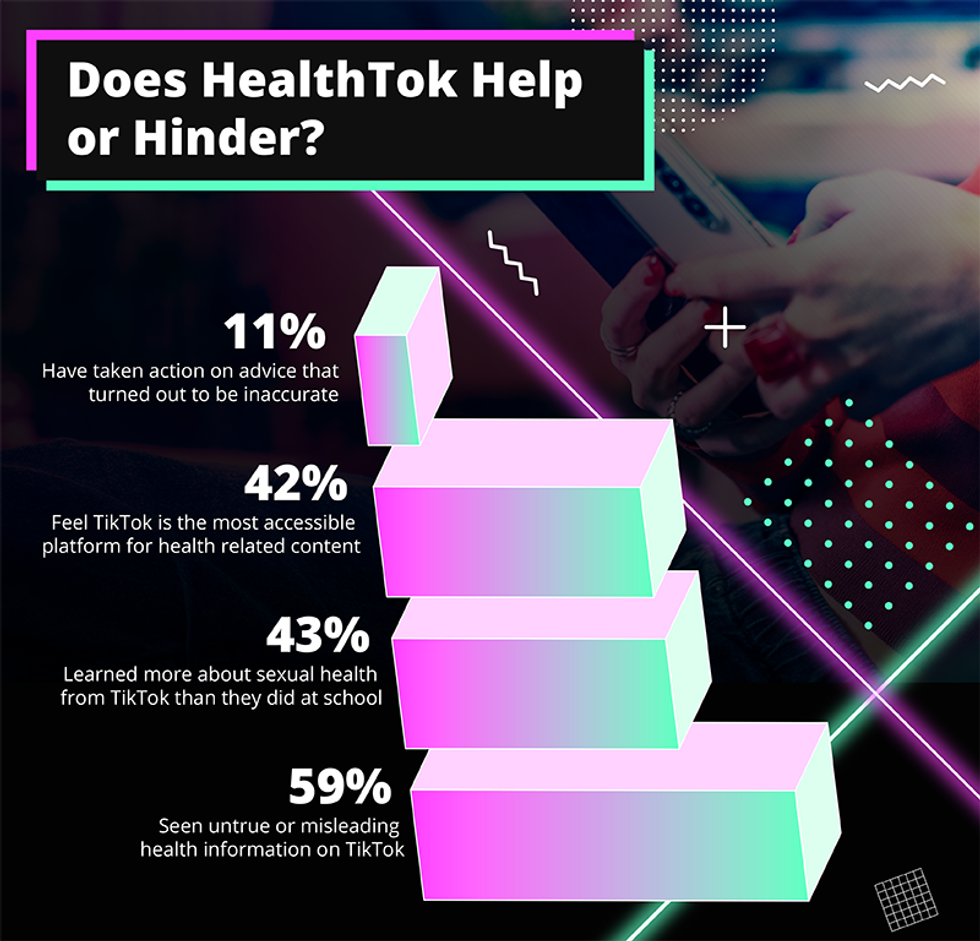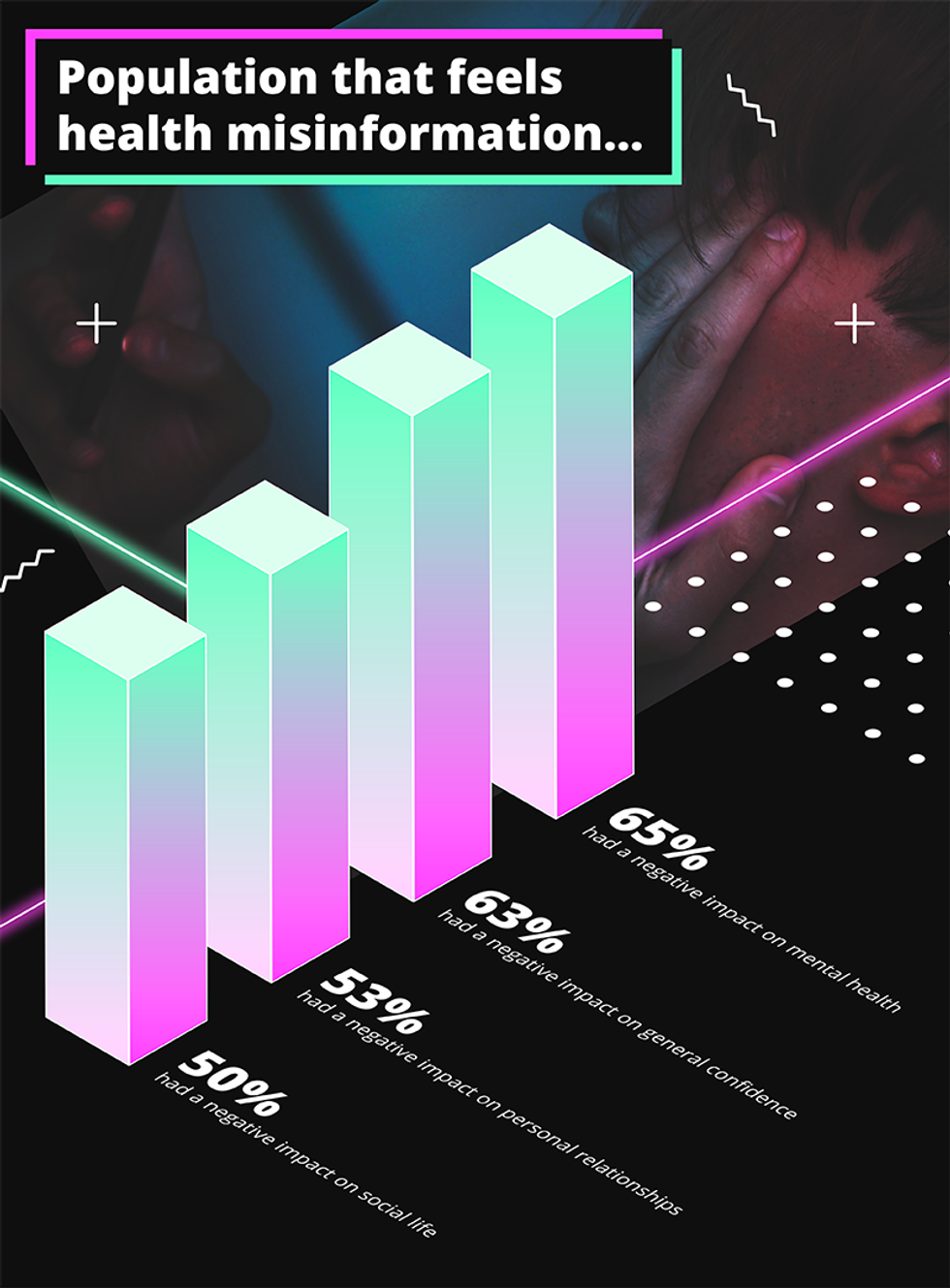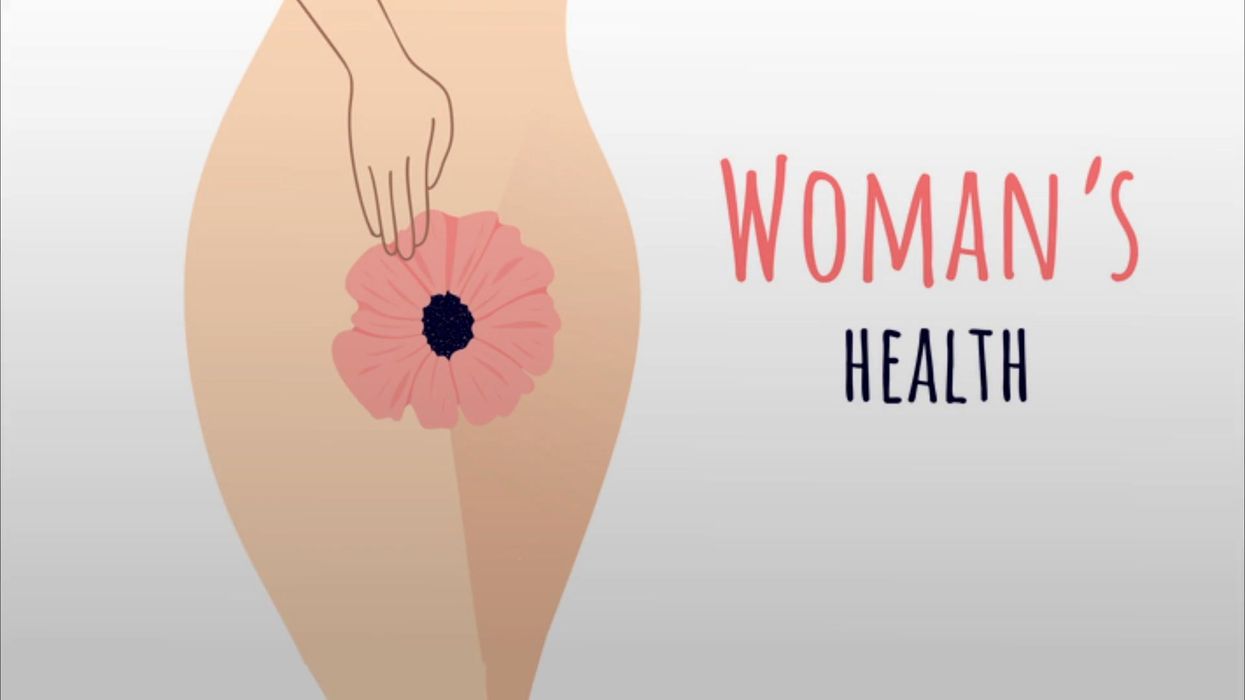Social media is flooded with health videos and so combating misinformation on these platforms can prove difficult, especially due to the endless amount of content out there.
A new study commissioned by Superdrug Online Doctor surveyed 2,000 social media users to understand Brits’ use of social media for health information, including sexual health advice, which is having a significant effect on teenagers.
It found that Brits act on health advice seen online an average of four times a year, either by sharing with friends, researching symptoms or purchasing products - with one in 10 have taken advice that they later found to be inaccurate.
Sign up to our free Indy100 weekly newsletter
On TikTok, 3 in 5 people (59 per cent) have seen untrue or misleading health information, according to this research.
Here is a breakdown of the research findings, as well as advice from qualified doctors on how to spot misinformation online:
An 812 per cent increase in articles with “TikTok” and ‘fake’
Instagram was voted the most trusted platform for health advice overall (15 per cent), and Twitter the least trusted (7 per cent).
Meanwhile, TikTok was the most trusted by younger generations with 38.9 per cent of TikTok users between the ages of 18 and 24, the study continued to reveal that 58 per cent of viewers aged 16-24 believe that the health advice they consume on social media is accurate.

The research also shows articles with “TikTok” and ‘fake’ in the title have had an 812 per cent increase since last December, suggesting a large rise in reporting of misinformation on the platform.
Sex education: Half of 16-34-year-olds say they learn more online than at school
Sexual health information has gained a huge audience on social media, with 1.6 billion views on TikTok’s #sexualhealth hashtag and an even bigger 3.1 billion views for STI symptoms.
Curious teens are turning to TikTok for answers, with 55 per cent of 16-24 year olds stating they have learnt more from TikTok in regards to sex than they have at school - slight decreasing to 46.5 per cent of 25-34 year olds feeling the same.
At the same time, young adults could also be turning to social media due to schools slacking in the sex ed department.
A previous study by Superdrug Online Doctor revealed that 72 per cent of Brits believe their sex education at school was ‘very basic’ or ‘poor’.
Mental health: The negative impact of health misinformation
The study also touches on how misleading health content can cause misdiagnosis and increased needless anxiety.
The research revealed 65 per cent of consumers feel health misinformation can have a negative impact on mental health whilst 63 per cent believe it can impact their general confidence.

While misinformation was also found to impact half of Brits’ personal relationships and one in two said it could even impact their social life.
Advice on fact-checking content
Psychologist, Smriti Joshi shared her top tips on how to spot a misleading post and ensure you fact-check the content you consume:
- Be aware of social media algorithms
- Have a critical eye and ear and ask if this is right for you.
- Always ensure to check the source of the information you are accessing.
- If a piece of information looks magical, it’s probably too good to be true.
- Remember we all have unique bodies and unique needs.
Have your say in our news democracy. Click the upvote icon at the top of the page to help raise this article through the indy100 rankings.














